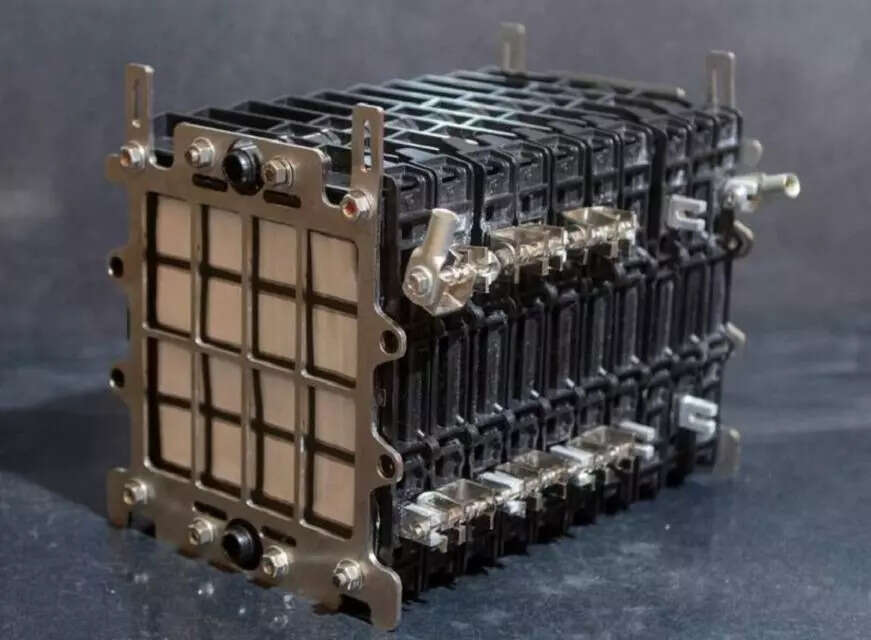
In this disruptive and innovative age, new offerings get picked up quite swiftly if the customer sees value in them. And that’s what at least two battery technology players will bet on, with their aluminium-air technology options. Phinergy, an Israel cleantech firm, and Bengaluru-based nanotechnology start-up Log9 Materials are looking at commercialising their aluminium-air technology systems this year.
Technology development and maturing takes time. For Phinergy, which started its journey in Israel’s Bar Ilan University, it took a decade. “We can take all of our past 10 years of working, trying to develop something that was non-existent, from technology, to product. And for that, of course, we understand we need to scale up things like Lithium-ion technology or any other technologies,” David Mayer, CEO, Phinergy, told ETAuto.
India: base for a new tech journey
Even though the technology for Phinergy was born and developed in Israel, India will play the key role for building up the Al-Air business. ”We have made a complete ecosystem in India,” Mayer said. In other words, the technology comes from Israel, while for applications, Phinergy has signed with “several automotive OEMs” here. For distribution, there’s Indian Oil Corporation, Phinergy’s joint venture partner, and also an investor in the company. “Even the complete supply chain, the fuel – aluminium, is locally coming from Hindalco. This is unique,” aMayer added.
Log9 Materials is planning to start some pilot projects by the third or fourth quarter of this calendar year. Unlike Phinergy, the Bengaluru based start-up will look at stationary applications for its Al-Air solutions. “It’s going to be a very different take in terms of stationary power. What you can do is digest an aluminium and get the energy out in a very different way of generating energy,” Pankaj Sharma, Co-founder and Director, Log9 Materials, said in an ETAuto Technology Talks panel discussion.
As a concept, in a metal-air battery technology, the metal (aluminium in this case) acts as the anode, and air as the cathode, together with a liquid electrolyte. Aluminium hydroxide gets created as a result of oxygen in the air combining with the metal, which in turn activates the electrolysis process and creates an electric current.
Aluminium being a lightweight material, an Al-Air battery is lighter than an equivalent Lithium-ion battery, with a higher energy density that the chemistry offers. The energy density can be around 8.1 kWh/kg. Average density of a Lithium-ion cell is said to be around 200Wh/kg. That’s a huge difference. However, experts say that due to energy losses in Al-Air chemistry, the final energy density difference could be between 8X and 15X.
Indian OEMs explore the new technology
Tata Motors and Mahindra & Mahindra are two major OEMs that Phinergy is working with, for deployment of Al-Air technology. A Tigor EV equipped with Phinergy’s battery pack, was displayed at Phinergy’s booth at the 2023 Auto Expo which attracted the interest of Tata Motors’ chairman N Chandrasekaran, and Tata Passenger Electric Mobility’s MD Shailesh Chandra.
Though not in any production car yet, some alternate battery chemistries are learnt to be in advanced stages of validation in India. Al-Air is one of them. “It’s a promising technology, there’s no doubt about that,” Anand Kulkarni, VP, Tata Passenger Electric Mobility told ETAuto.
The Al-Air tech is seen as a promising technology option to help EVs address the range anxiety issue. It can be seen as a “hybrid battery” in an EV, as an Al-air powered vehicle will also have a small Lithium-ion battery. In such a vehicle, this battery can be 70%-80% smaller than the one found in an EV powered by a Lithium-ion battery only.
“The hypothesis here is that most people tend to drive between 40 and 50 kilometres a day. And therefore ,the lithium ion battery should be able to take care of that need. But in the event that you do want to go long distance, then the Aluminium air battery should come as a booster, and for enabling you to do much longer distances” Kulkarni said.
Other major OEMs Maruti Suzuki and Ashok Leyland had signed a Letter of Intent (LOI) with the IOC Phinergy JV earlier. Senior representatives of the OEMs are involved in the technology validation process.
“By the way, we are not against Lithium-ion or anything of that sort. What we are saying is, there are some more possibilities for people to consider in order to dismiss the energy anxiety they may have with lithium ion, because the energy density here (Al-Air) is dramatically more,” Mayer said.
In the swiftly evolving technology landscape, Al-Air is promising to qualify as a gamechanger option. More trials and validation will prove whether it actually will be. However, the basket for energy options is surely set to get bigger, and more efficient.














